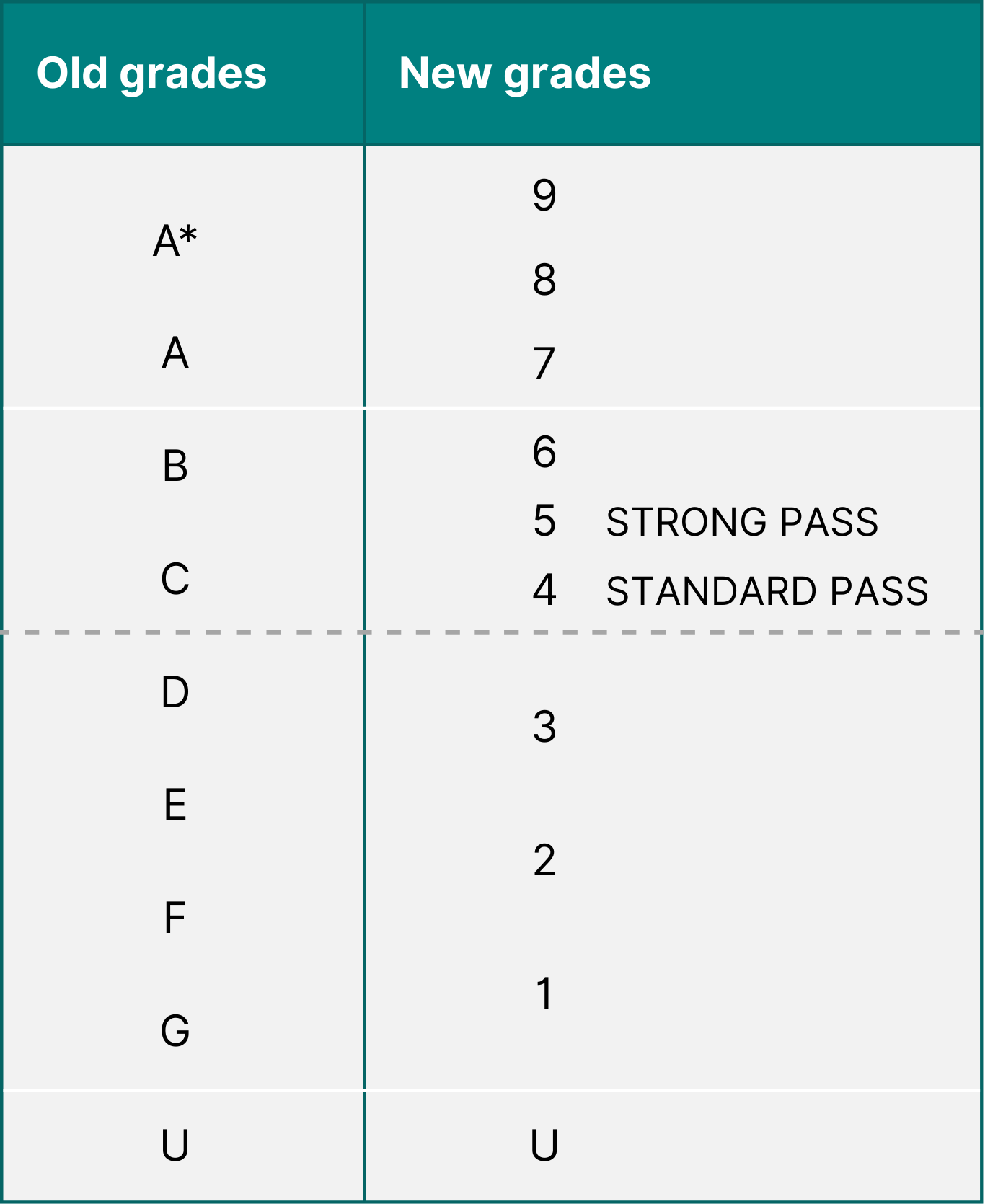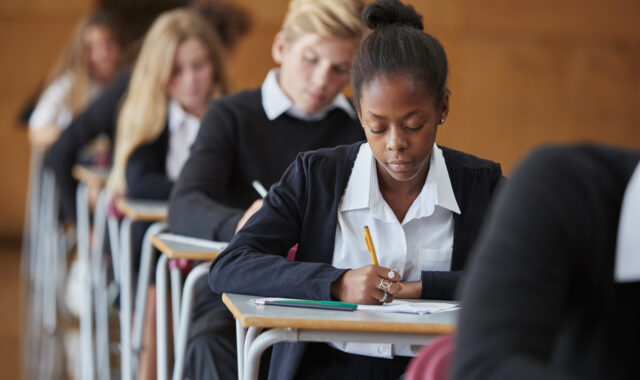Contents:
GCSE Results Day is a milestone moment in your child’s education—and it can be just as nerve-wracking for parents. Whether the results are better than expected, not quite what was hoped for, or somewhere in between, knowing what options are available and how best to support your child can make all the difference.
This guide covers everything you need to know—from what to expect on the day itself to exploring a full range of post-results options. Whether your child is celebrating, reconsidering their plans, or unsure of their next steps, you’ll find practical advice to help you navigate GCSE Results Day 2025 and support your child with confidence.
When is GCSE Results Day 2025?
GCSE Results Day will take place on Thursday 21st August 2025. Schools will receive the results on Wednesday 20th August, and students can access them from Thursday morning.
Results are typically available from around 08:00 BST, though exact timings can vary by school. Some schools may also stagger collection times, so it’s best to check in advance to confirm the arrangements.

What happens on GCSE Results Day 2025?
Most students collect their results in person at their school or college. Some schools may also provide results via email or through an online portal.
If your child can’t attend in person—whether due to illness, holiday plans, or other reasons—they can usually make alternative arrangements. This might include nominating someone to collect the results on their behalf or arranging to have them posted. Contact your child’s school in advance to organise this.
On Results Day, your child will receive a Candidate Statement of Provisional Results. This is not their final certificate but a breakdown of their grades per subject. Official certificates will be issued later in the autumn.
Understanding GCSE grades and what they mean
GCSEs in England are now graded on a 9–1 scale, with 9 being the highest grade. This replaced the old A*–G system to allow for greater differentiation, especially at the top end.
Here’s a comparison between the old letter grades and the current system:

Source: BBC
Key points to note:
- Grade 4 is a standard pass, equivalent to a low C in the old system.
- Grade 5 is a strong pass, comparable to a high C/low B.
- Grades 7, 8, and 9 cover the old A and A* range, with Grade 9 awarded to the very highest performers.
Note: In Wales and Northern Ireland, most GCSEs still use the A*–G grading system. However, if your child takes an exam from an English exam board, their results will be graded using the 9–1 scale.
What are grade boundaries?
A grade boundary is the minimum number of marks a student needs to achieve a particular grade in a GCSE exam. For example, if the boundary for a Grade 6 in maths is 120 marks, a student must score at least that to earn a 6.
Grade boundaries are set after exams are marked, to reflect the difficulty of the paper and how students performed nationally. This means they can vary slightly from year to year.
Understanding grade boundaries can be especially helpful if your child doesn’t get the grade they were expecting. If they’re only a couple of marks away from the next grade up, it may be worth requesting a review of marking, especially if they feel that their grade doesn’t accurately reflect their exam performance.
For a detailed look at the new GCSE grading system—including pass marks, grade boundaries, tiered subjects, and more—take a look at our parent guide: GCSE grades explained.

How to support your child on GCSE Results Day
GCSE Results Day can be an emotional rollercoaster—for both students and parents! It’s a good idea to prepare in advance so that, whatever the outcome, things run as smoothly as possible on the day.
Before the day
- Check in with your child and encourage them to share any worries or concerns they may have regarding GCSE Results Day.
- If your child is feeling anxious, it can help to keep them occupied with activities so they don’t spend too much time worrying about their results. You might also suggest taking a break from social media for a couple of days beforehand to avoid anxiety-inducing posts regarding result expectations.
- Ask your child if they would like you to go with them to collect their results or if they have made plans to go with a friend. Encourage them to consider whether they’d prefer to open their results in private or with others.
- Make a plan for how you’ll handle different eventualities. This might include speaking to teachers if results aren’t as expected or looking up information about alternative courses. Knowing what options are out there can help alleviate Results Day anxiety.
- Most importantly, encourage your child to plan something fun for after they collect their results. Whether it’s a family meal, a trip out, or meeting friends, having something to look forward to can help shift the focus from stress to celebration. Try to keep your own schedule flexible, if possible, so you’re available if needed.

On the day
- Make sure your child knows where they need to go to collect their results and that they have everything they need. Useful items include a fully charged phone, a notebook and pen, and any important phone numbers or documents they might need for their Sixth Form or college. They may also need to take a photo ID.
- Stay calm and supportive. Try not to let your own anxiety show, and reassure your child that no matter what grades they get, you’re proud of them for getting this far.
- Let your child tell you their results when they are ready, which may be straight away or once they’ve had a chance to let them sink in. Likewise, they may not be ready to share their results with the wider family or their friendship group just yet. Let them know they can take their time.
- Remind your child that everyone’s journey is different and not to compare their results to those of others, whether friends or older siblings. Again, taking a break from social media can help them to focus on their own progress and goals.
- Offer perspective. If things haven’t gone to plan, remind your child that there are always options—and plenty of time to figure them out.
- Be ready to listen. Whether they’re celebrating, disappointed, or confused, you can support them by asking open questions and really listening to how they’re feeling.
What happens next?
If your child has received the results they were hoping for, congratulations! The next steps will likely involve confirming their Sixth Form or college place and enrolling on their chosen courses.
If they’re still weighing up different Sixth Form options, you might find our guide on how to support your child in choosing a Sixth Form helpful.

What if my child doesn’t get the GCSE results they need?
If things haven’t gone to plan, don’t panic. Reassure your child that they’re not alone—many students find themselves in this position each year—and there are still plenty of options to explore.
Contact the Sixth Form or college
If your child hasn’t met the entry requirements for their chosen Sixth Form or college, contact the institution as soon as possible. They may still accept your child, especially if they’ve only narrowly missed the required grades. Alternatively, they might offer a different course or study pathway.
If their place isn’t confirmed, it’s worth reaching out to other local colleges or Sixth Forms. Many still have spaces after Results Day and could offer a suitable alternative based on your child’s interests and qualifications.
Some colleges also offer Level 2 or foundation courses, which have lower entry requirements and can serve as stepping stones to further qualifications.
Consider a remark
If your child has missed a grade boundary by just a couple of marks—or you suspect an error—it’s possible to request a review of marking. There may be a cost involved, and deadlines are usually quite tight, so contact your child’s school as soon as possible if you are considering this.
Your child’s teacher can review the marked paper to help decide whether a remark would be worthwhile. Keep in mind that marks can go up or down, so remarks are generally only recommended when a student’s marks are close to the grade boundary above.
Consider resitting exams
Your child has the option of resitting any exams that they want or need to. Resits are usually optional, although there are special rules for English and maths.
Maths and English GCSE retakes for 16-year-olds:
If your child hasn’t achieved a pass (Grade 4) in English or maths, they’re required to continue studying these subjects until they turn 18.
GCSE resits for English and maths are available in November 2025, provided your child is aged 16 or above on 31st August. They can also resit them next summer. Depending on your child’s results and future study plans, they may be able to take a Functional Skills qualification instead of a GCSE.
Other GCSE subjects can be retaken next summer if your child chooses to do so. This will likely depend on whether they need to achieve a certain grade for a course they want to study. Sixth Forms and colleges often allow students to study for resits alongside their new course. Talk to your child’s school or college to find out what’s possible.

Explore other pathways
If A Levels aren’t the right fit for your child—or their GCSE results mean they need to consider different options—there are still plenty of pathways that can lead to successful careers or further study.
Vocational courses are an ideal alternative to A Levels for students who prefer a more practical, hands-on approach to learning. These include:
- BTECs (Business and Technology Education Council qualifications): Career-focused qualifications in a wide range of subjects. They’re available at different levels and accepted by many universities.
- T Levels: Introduced in 2020, T Levels are equivalent to 3 A Levels and combine classroom-based study with hands-on training and work experience.
- NVQs (National Vocational Qualifications): Work-based qualifications that focus on practical skills assessed in real working environments.
- Apprenticeships: These allow students to earn while they learn, combining paid employment with structured training. Available across a wide range of industries, they can lead to higher qualifications, including degrees.
For more information about vocational courses, take a look at our article exploring your child’s options if they don’t want to do A Levels. And if your child enjoys STEM subjects, our new STEM at School section explores hands-on vocational routes that could be the perfect fit.
Speak to a careers advisor
Whatever your child is considering, professional guidance can help. Most schools have a designated careers advisor that your child can speak to for tailored support and information about their next steps.
They can also contact the National Careers Service Exam Results Helpline for free on 0800 100 900.

What if my child gets better GCSE results than expected?
It’s also possible that your child achieves better results than expected.
This may open up new opportunities, such as courses or subjects they hadn’t previously considered based on their predicted grades. Encourage your child to explore these options and get in touch with their chosen Sixth Form or college to see if places are available on their preferred course.
GCSE Results Day 2025 can bring a whole mix of emotions, but with some preparation, open communication, and a clear understanding of the options available, you can help your child feel confident about what comes next.
Whatever the outcome, take some time to celebrate their hard work and enjoy a well-deserved break from thinking about exams!

Book An Exam Prep Course from £14/hour
Help your child feel prepared and perform at their best with our one-day GCSE Exam Preparation Courses. These expert-led sessions focus on building effective exam strategies, tackling common question types, and boosting confidence ahead of exam day.
Book nowFAQs
What day do GCSE results come out in 2025?
In 2025, GCSE Results Day will take place on Thursday 21st August. Students can typically collect their results from school from around 08:00 BST, though exact times may vary. It’s advisable to confirm the specific arrangements with your child’s school in advance.
Do parents go with kids to get GCSE results?
Parents are not required to go with their children to collect GCSE results, but many choose to accompany them for support. Ask your child whether they would like you to go with them.
Can I collect my child’s results for them?
Yes, your child can nominate a friend or family member to collect their results on their behalf. The nominated person will usually need written permission from your child, and they will need to take along a photo ID. Check your school’s policy in advance.
What happens if you are on holiday on GCSE Results Day 2025?
If your child is on holiday on GCSE Results Day, they can make alternative arrangements with the school, such as having someone collect their results on their behalf or requesting that the results be posted or sent via email. It’s important to contact the school in advance to organise this.
Do GCSE results get emailed?
Some schools may email GCSE results to students or provide access through an online portal. However, most students will collect their results in person at their school or college. It’s best to check with the school for specific arrangements.
Is 3 a pass at GCSE?
No, a Grade 3 is not considered a pass. In the current 9–1 grading system, a Grade 4 is the standard pass, equivalent to a low C in the old grading system. A Grade 3 is below the pass mark.
What is a GCSE Grade 7?
A Grade 7 in GCSEs is the equivalent of an A in the previous grading system and indicates a strong performance. A Grade 8 is just below an A*, representing exceptional performance. A Grade 9 is the highest possible grade awarded to the top-performing students and is above the old A* grade.
What happens if you do worse in a GCSE resit?
If your child’s resit grade is lower than their original GCSE score, their original higher grade will still stand. The resit grade will only replace the original if it’s higher. No matter how many times your child resits a GCSE, they’ll have the option to keep their highest grade.
Can my child still go to Sixth Form or college with a Grade 3?
That depends. In most cases, a Grade 3 in GCSE English or maths means your child will need to resit these subjects, which may be possible for them to do while continuing with their Sixth Form or college studies. Colleges may accept students with a Grade 3 for other subjects if they have met or are close to meeting the entry requirements, but this will depend on the individual college. It’s always worth asking the college what your child’s options are.
Do GCSE grades affect university applications?
Yes, UK universities often look at GCSE grades—especially in core subjects like English and maths—alongside A Level predictions when considering applications. Depending on the course, they may require high GCSE grades in certain subjects. Check the course entry requirements for specifics.







Comments